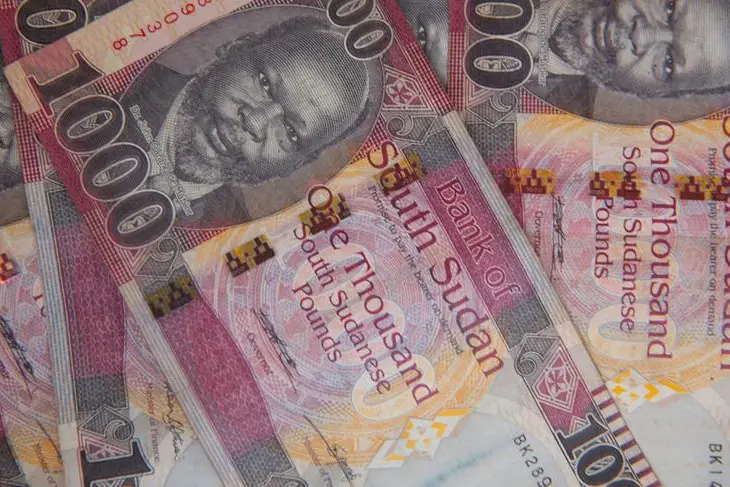PHOTO
The Bank of South Sudan (BoSS) has lifted the SSP10 million ($2,567) cash withdrawal limit from commercial banks and is encouraging lenders to offer interest on savings as part of measures to deal with a liquidity crisis that is taking its toll on the limping economy.
Newly appointed central bank governor Johnny Ohisa Damian says the growing public mistrust of commercial lenders has discouraged bank deposits leaving the public hoarding cash.“To further strengthen public confidence in the banking sector, the central bank has resolved to encourage commercial banks to offer interest on savings accounts. This initiative aims to incentivise customers to deposit more into their savings accounts,” Mr Damian said in a statement dated December 13.
The new measures were agreed on in a crisis meeting held on December 12 between the BoSS management and commercial banks executives to resolve the liquidity challenges in the economy.
The meeting also discussed ways to address the broader macroeconomic challenges facing the country.
Mr Damian directed that the SSP10 million ($2,567) cash withdrawal limits by clients from individual accounts be lifted, and the BoSS and commercial banks reaffirmed their commitment to rebuilding trust between them on the one hand and the public on the other.
Sudan limits cash withdrawals to encourage electronic transactions“This new collaborative approach is expected to strengthen working relationships among the country’s banking and financial sectors,” Mr Damian said.
The meeting came days after President Salva Kiir sacked central bank governor Alic Garang and army chief Santino Deng Wol in the latest purge of the country’s security and economic institutions.
Mr Damian, a former BoSS governor, was appointed as Dr Garang’s replacement. Samuel Yanga Mikaya, was also sacked as first deputy governor and replaced by Yeni Samuel Costa.
The BoSS, in a circular dated September 16, 2024, had restricted the maximum limit for cash withdrawals by individuals and public and private sector entities to SSP10 million ($2,567) in a push to promote a cashless economy and reduce the cost of printing banknotes to replace worn-out ones.
The regulator directed that cash in excess of SSP10 million be either deposited in a bank account, transferred within the banking industry or through interbank transactions, including mobile money operators, and that customers use alternative authorised channels to conduct banking transactions, a move seen to foster digitalisation of financial services.“The public is encouraged to embrace electronic payment platforms, including mobile money, credit and debit cards, which incur low charges on transactions, while offering convenience and establishing individual credit history," the BoSS said in September.
According to IMF, spillover effects of the conflict in Sudan, including refugee inflows and damage to an oil pipeline, have exacerbated Juba’s difficult humanitarian and macroeconomic situation, resulting in an economic slowdown, sharp exchange rate depreciation, high inflation, and increased spending needs against a backdrop of large revenue losses.
Damage to the pipeline that transports 70 percent of South Sudan’s oil through Sudan has led to a sharp decline in oil exports, resulting in lower foreign exchange inflows, a sharp exchange rate depreciation on the parallel market, a steep fiscal revenue drop -- leading to the accumulation of salary arrears -- and high inflation.
The war in Sudan has also led to a massive influx of refugees (more than 800,000 as of mid October 2024) and a supply chain disruption, mainly imports of fuel and key food staples.
More than half of the population -- about 7.1 million -- is said to be experiencing acute food insecurity.
The South Sudanese authorities face the challenge of meeting higher spending needs, including for humanitarian relief, in the face of limited financing options.
In September, Juba and Khartoum agreed to resume oil production and export, signalling cooperation over a key pillar of their economies that had been brought down by the war in Sudan.
The details of the cooperation emerged after bilateral discussions between President Salva Kiir and Sudanese military leader Abdel Fattah al-Burhan on September 16.
© Copyright 2022 Nation Media Group. All Rights Reserved. Provided by SyndiGate Media Inc. (Syndigate.info).




















